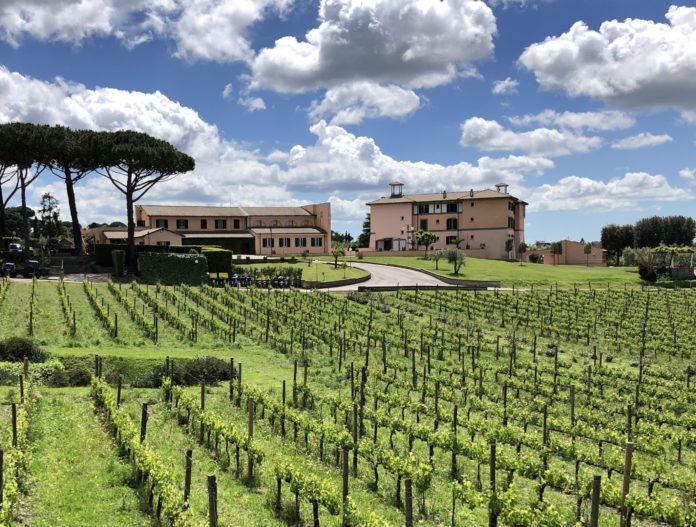Freshmen at UD are all familiar with epic poetry. Over the course of Lit Trad I, they read the tales of heroes far from home facing impossible challenges, getting themselves into dangerous situations and getting out of them with intelligence, skill and a little divine intervention. It is not until such students find themselves together in Europe that they identify with such heroes.
Across the Atlantic, UD sophomores learn their most important lessons in the most unexpected places. If they are lucky, they will find themselves facing their toughest challenges with the most unlikely friends. In the process, they discover features of Europe that are only possible to learn by stumbling into them.
If you talk to a student who has come from Rome, they are bound to give you advice that you never expected to receive: how to order a flaming goblet of absinthe in Prague, how to find the best pork souvlaki in Athens or how to politely cram yourself into a water taxi in Venice. UD students come back from Rome with a litany of strange yet practical advice for the underclassmen that are dying to know how to maximize their future Rome experience.
But what does a homecoming look like for these students? The Fall Romer comes back to Irving as a stranger to the freshmen who have already had a full semester here. A returning Fromer sees these students, though brand new to him, as fully familiarized with the campus and upperclassmen. In my experience, I met this with some considerable confusion.
“How could this have happened?” I wondered. “Shouldn’t they just be going through orientation now?”
Being far away from the campus for a full semester made me forget that any time had passed here, as if I expected Irving to be frozen in place until I returned. Here again the UD student cannot escape a central theme from Lit Trad I: even in homecoming, you face an unfamiliar territory.
The Fall Romer comes back in the spring with the benefit of fresh insight that comes with a unique responsibility to advise the freshmen. It is certainly tempting to load freshmen up with exciting stories of dangerous situations narrowly escaped, but every UD student who has been to Rome knows all too well that these freshmen should be adequately warned. The Rome semester is inarguably beautiful, but it puts forth a lot of practical challenges.
Looking back on it, I wish I had known how important it was to not overlook the minor things that can develop into larger issues. The single most important thing I can say to the freshmen who are going to Rome next fall is this: make sure you are sleeping enough. Nothing added to the stress of the already accelerated course schedule like a poor night’s rest (or thirty of them in a row). Nothing had the power to rob enjoyment from traveling like a terrible sleep schedule.
There’s no denying that this advice is boring. It’s hardly what a freshman wants to hear. What incoming Rome students want to know is how to maximize their experience through enjoyment. While many upperclassmen have tips and tricks for this in spades, they usually offer something several times more valuable: how to maximize their experience through maintenance.
Even the most eventful night of your life can seem miserable when you’re dehydrated, sleep deprived, and 40 pages of Herodotus behind. The trick to a great experience in Rome does not depend on where you go on your long weekends or how you decide to explore the Eternal City. The real trick is to slow down. Sleep well. Drink a lot of water. Read ahead early on in your classes so you will have less to do later on. If this doesn’t sound exciting, you are exactly right. The semester in Rome passes by very quickly. If you don’t slow down and take inventory of where you are, you just might miss the very best parts.
